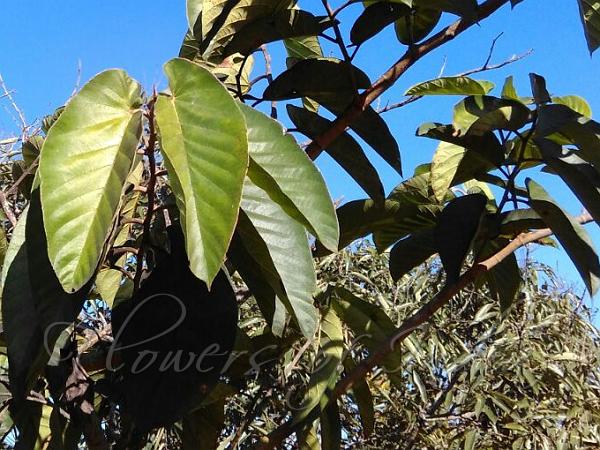|
| Drooping Fig |
|

|

|
|
|
|
Photo: |
Botanical name: Ficus semicordata Family: Moraceae (Mulberry family)
Synonyms: Covellia cunia, Ficus cunia, Ficus conglomerata
Synonyms: Covellia cunia, Ficus cunia, Ficus conglomerata
Drooping Fig is a small to medium sized tree , up to 15 m tall, with an
irregular crown. Trunk is up to 2 m in circumference, without aerial
roots. Bark is dark-grey, young twigs covered with white or pale-brownish
short hairs. Leaves are carried on 1-1.5 cm long stalks. Leaf blade is
variable, mostly elliptic to oblong, lanceshaped, 10-30 cm long, 5-10 cm
broad, base highly unequal-sided with a 3.4-nerved rounded large lower
lobe overlapping the stalk. Leaf margin is entire or coarsely toothed. Tip
is tapering, and the leaves are slightly rough on both sides or hairy
beneath. Figs are spherical to pear-shaped, 1.2-2 cm in diameter, pink or
dull reddish brown with white spots, hairy, on leafless branches. The
branches are pendulous and are often prostrate on the ground. The figs
often mature underground, hence the Hindi common name bhui goolar.
Figs are edible, leaves are lopped for fodder. Fibres from the bark are
used to make coarse rope.
Drooping Fig is found in the Himalayas, from Kashmir to NE India, SE Asia, C. India,
at altitudes of 600-2000 m. Flowering: May-October.
| Identification credit: Prashant Awale | Photographed Kakching, Manipur. |
• Is this flower misidentified? If yes,